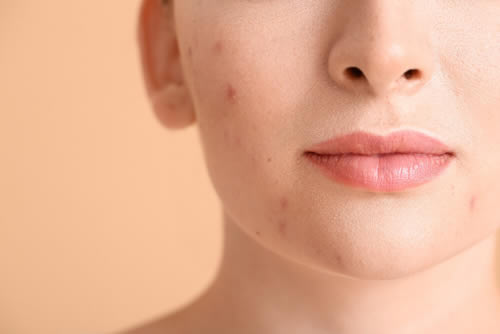Nearly everyone has annoying acne bumps pop up now and then. Although it is often thought to be a condition for teenagers, it also occurs in adults and even babies. Acne occurs when hair follicles become clogged usually with oil or dead skin and may develop anywhere on the body.
Acne can range from mild to moderate to severe. When it is persistent and problematic, it may negatively impact your confidence and self-esteem. There are a number of types of acne, which is important to know for the most effective treatments. Common types of acne blemishes include:
- Whiteheads are small and round, occurring under the surface of the skin. They typically have a white or pale yellow color. Whiteheads often result from oily skin, puberty, hormones, or cosmetic use.
- Blackheads are similar but are dark in color. They rise to the surface of the skin and the air exposure causes oil inside to appear dark. Blackheads develop from oily skin, hormones, irritated hair follicles, cosmetics, or some medications.
- Inflammatory papules develop when a hair follicle or pore is clogged with bacteria and your immune system produces white blood cells to fight the bacteria. This usually causes unsightly red swollen papules.
- Inflammatory pustules are similar but contain pus inside that is full of oil, bacteria and dead skin. These bump clusters are usually larger, red and sensitive.
- Nodules are large, firm bumps under the skin that contain bacteria and oil that goes deeper into the skin. These can be painful and produce long-lasting scars.
- Cysts also occur beneath the skin and are the most severe type of acne. Cysts are filled with fluid and often occurs in menstruating women who are affected by varying hormone levels.
Mild to moderate acne may be treated at home with over-the-counter creams or face washes. Sometimes acne is more serious and benefits from a skilled dermatologist like Dr. Bernard Raskin in Bakersfield for accurate diagnosis and more effective treatments. Acne is a common condition that should not cause you to suffer or feel embarrassed. If your acne does not improve with self-care, schedule an appointment to get your acne under control.


